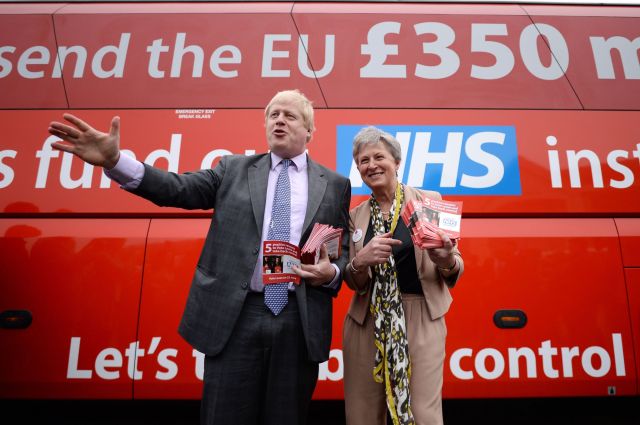Credit: Stefan Rousseau/PA Wire/PA Images

A dilemma is when you’re forced to make a choice between two things that you want, but can’t have at the same time. A trilemma is when there are three things that you want, but, at most, you can only have two of them.
One of the best known examples is the globalisation trilemma that was first proposed by the Harvard economist, Dani Rodrik. This is how Krysztof Pelc describes Rodrik’s idea in an essay for the Literary Review of Canada:
“Like all great ideas, it is at once intuitive and unsettling. Rodrik argues you can have any two of the following three things: fuller economic integration, democratic representation, and the nation-state — but not all three at once.”
If you choose items 1 and 2 (globalisation plus democracy) then you have to accept that some or all the big decisions will be made at a supranational level – thus weakening national sovereignty:
“The democratic process would remain, but it would increasingly be transposed onto a global scale. Labour, environmental, and public health activists would continue to check the interests of exporters and multinational corporations, but all these groups would agree that they were best served by a common set of supranational rules, rather than conflicting sovereign ones.”
The European Union is the prime example of a 1 + 2 arrangement (at least, in theory).
A combination of items 1 and 3 (globalisation plus the nation-state) means downgrading democracy or doing without it altogether. For instance, countries such as Qatar are so globalised in respect to their workforce that foreigners make up most of their populations. Yet native elites remain in undisputed control because, in an absolute monarchy, the question of who governs is not up for debate. China is another example of a country that has combined participation in the global economy with national sovereignty. The terms of China’s global engagement are tightly controlled by the Communist Government – with the Chinese people not allowed to interfere.
Finally, we come to the combination of items 2 and 3 – democracy plus the nation-state. In theory, a national electorate could provide a mandate for the free movement of people, goods and capital across borders. But, as we’ve seen over and over again, globalisation tends to produce winners and losers – both within and between countries. This creates the possibility that a national electorate will vote to “take back control” – and therefore disrupting the international agreements on which regional or global integration depends. The deeper the integration; the greater the likelihood that this will happen.
Sustaining an ambitious programme of globalisation (or regionalisation) therefore means depriving national electorates of their veto – either by doing without democracy altogether (the 1+3 combo) or only allowing significant changes to be decided internationally (1+2).
As an internationalist and a democrat, Rodrik was an influential supporter of the 1+2 combination – globalised, supranational governance:
“At the time, Rodrik put his money on that last outcome. Over the next century, he speculated, global integration would continue apace, and the nation-state would lose its formal relevance.”
However, Pelc suggests that Rodrik has changed his mind:
“…in Rodrik’s most recent book, Straight Talk on Trade: Ideas for a Sane World Economy, global federalism gets no mention. Instead, we’re told about the ‘false promise’ of global governance—the term more commonly used today—and that ‘the best way in which nations can serve the global good…is by putting their own economic houses in order.’”
In truth, 1+2 always was a chimera. Democracy requires a demos – a ‘people’ – and peoples do not form around supranational bureaucracies.
When decisions become difficult, such structures pitch the representatives of one demos against another – as in the case of Germany versus Greece during the Eurozone crisis. Unless there is a permanent stalemate, the stronger side will come to dominate the weaker, which, for the latter, means that 1+2 becomes 1 only – i.e. globalisation without sovereignty or democracy.
In such circumstances 2+3 – i.e. taking back control – will always appear to be the better option.










Join the discussion
Join like minded readers that support our journalism by becoming a paid subscriber
To join the discussion in the comments, become a paid subscriber.
Join like minded readers that support our journalism, read unlimited articles and enjoy other subscriber-only benefits.
Subscribe